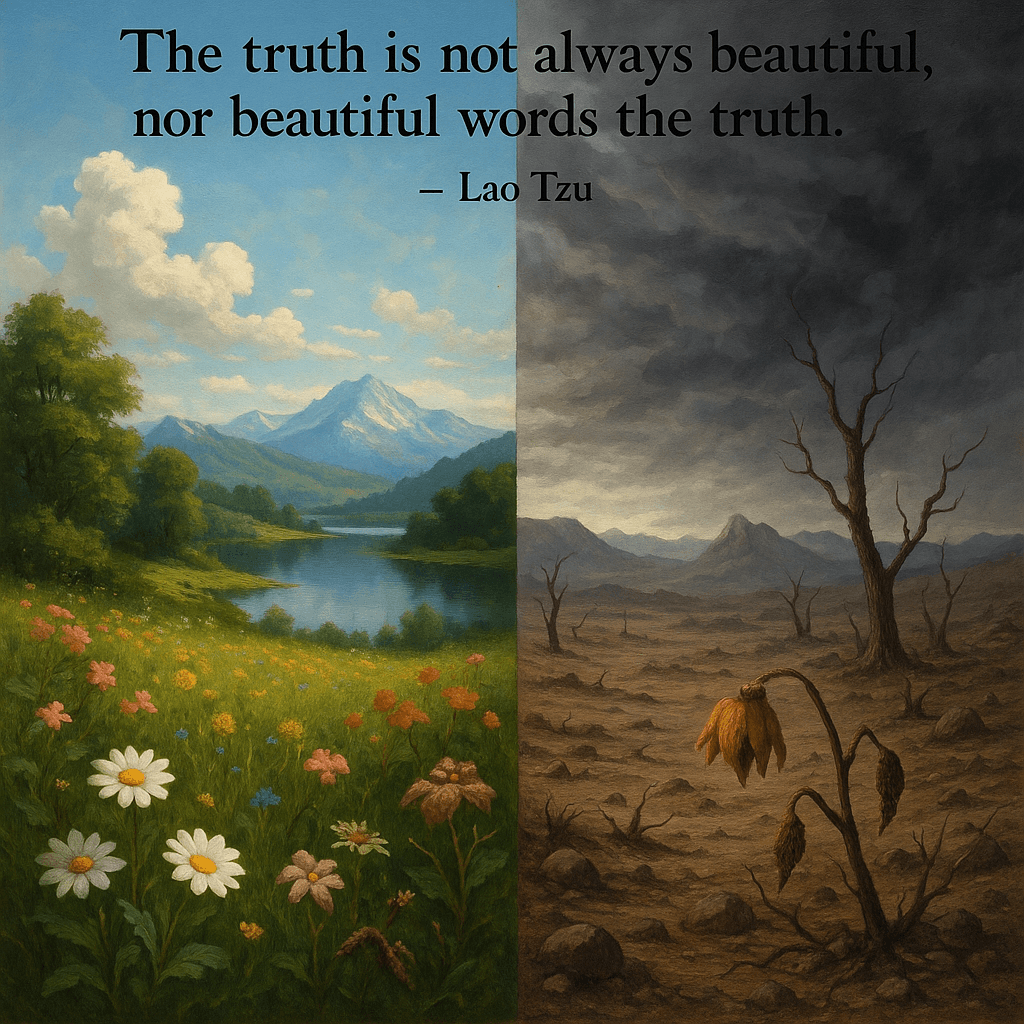Truth and Beauty: The Tension in Words and Reality

The truth is not always beautiful, nor beautiful words the truth. — Lao Tzu
Lao Tzu’s Paradox of Truth and Beauty
Lao Tzu, in his influential work the Tao Te Ching (circa 6th century BC), presents a compelling paradox: that truth does not automatically align with beauty, nor do beautiful words always convey truthful intent. He invites us to reflect on the limitations of language and the often uncomfortable nature of reality, challenging the assumption that what sounds pleasing must also be correct or virtuous.
Historical Examples of Hard Truths
Expanding from ancient wisdom, history is replete with instances where the truth was neither comfortable nor welcome. Galileo’s defense of heliocentrism in the 17th century, for example, was met with resistance precisely because it clashed with prevailing beliefs; his words were not embraced as beautiful, but their later vindication illustrates how truth can inconvenience and disrupt.
The Seduction of Beautiful Language
Conversely, eloquence has long been a tool for persuasion, sometimes at the expense of honesty. Rhetoricians since Cicero have warned that flowery oratory can cloak falsehoods in allure. Advertisements and propaganda often deploy striking language to mask ulterior motives—demonstrating Lao Tzu’s warning that beautiful words do not guarantee sincerity.
Psychological Comfort Versus Authenticity
Human psychology contributes to this dynamic; we are drawn to pleasant narratives and instinctively resist information that challenges our worldview, a phenomenon known as cognitive dissonance. As psychologist Leon Festinger argued in the 1950s, people tend to favor harmonious stories—sometimes at the expense of confronting harder, harsher truths.
Embracing the Complexity of Communication
Ultimately, Lao Tzu’s observation urges a more mindful relationship with words and reality. Rather than equating eloquence with truth or shunning discomfort, we are called to explore the deeper layers beneath what is spoken or written. By cultivating discernment and humility, we honor both the beauty and the difficulty inherent in seeking what is genuinely true.